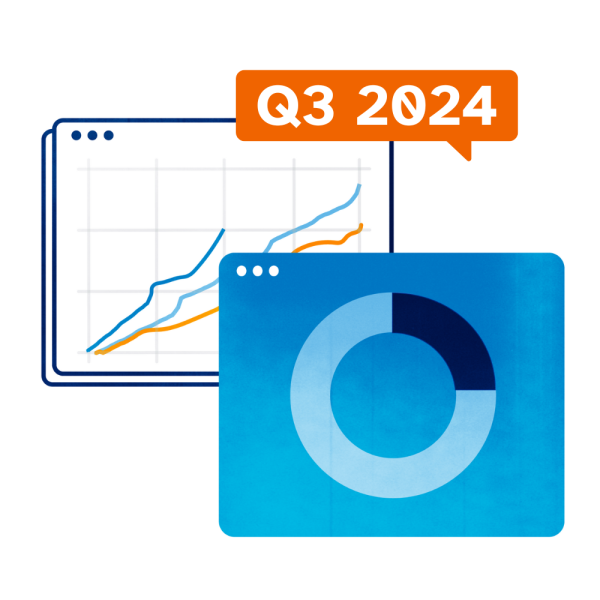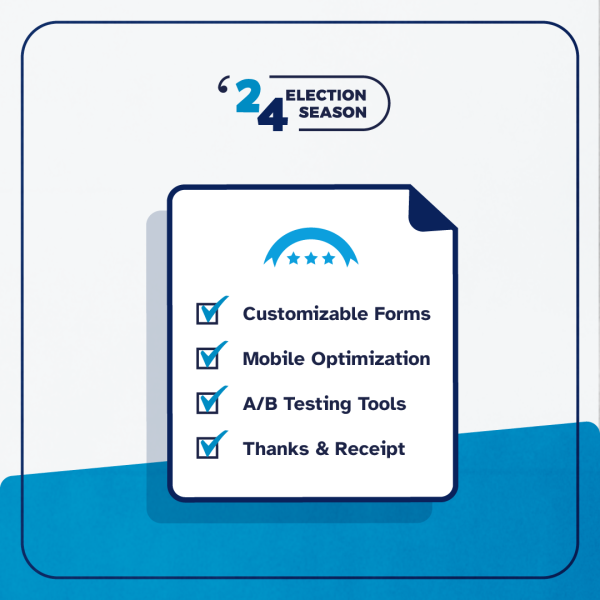Asking for monthly donations is one of the most impactful strategies available for engaging with small-dollar donors and building a sustainable grassroots movement. A successful recurring program allows campaigns and organizations to raise more money and budget more effectively, but that’s not all — asking people to invest in your cause over the long term helps you build meaningful relationships with donors. And ActBlue users are excited to give on a regular basis: During the 2018 election cycle, 41% of all donations on ActBlue came from recurring contributions. That added up to over $324 million given to progressive campaigns and organizations creating a better future as a result of both monthly and weekly donations!
Recurring contributions powered small-dollar donors’ record-breaking fundraising on ActBlue in 2018, and we know they’ll be even more important moving forward. Keep reading to learn more about engaging with small-dollar donors using smart grassroots strategies and ActBlue’s easy recurring tools.
First, why focus on recurring contributions instead of only sending one-time asks?
1. Long-lasting relationships.
Here at ActBlue, empowering small-dollar donors is our bread and butter. That’s why we think recurring contributions are so important: When people choose to give money to a group on a regular basis, they are investing fully in change and cementing themselves as an essential part of your campaign or organization. It’s conventional wisdom that early money makes a huge difference in politics, so asking early donors in particular to sign up for recurring contributions ensures that you have dedicated supporters from the very beginning and more contributions coming in as your campaign heats up. The same advice applies to nonprofits launching a new fundraising push! In addition to giving monthly, recurring donors are more likely to be vocal, action-oriented advocates who will support you over and over again: In 2017 and 2018, 35% of recurring donors on ActBlue gave a one-time contribution to the same group after their initial recurring contribution. In other words, these grassroots donors will help you spread the word, raise money, and achieve your goals!
2. More money: period.
Receiving small-dollar donations every month brings in more money than receiving larger one-time donations. The 2018 election cycle, which produced huge wins for Democrats and progressive causes, is a great example of this. A $10 recurring contribution started in the 2018 cycle now has a total worth, on average, of $61.94 — over 6 times the worth of a $10 one-time contribution (some of these contributions finished in the 2018 cycle, and some are continuing into 2019). And the momentum isn’t slowing down any time soon! ActBlue has already processed over $100 million in recurring contributions so far this year.
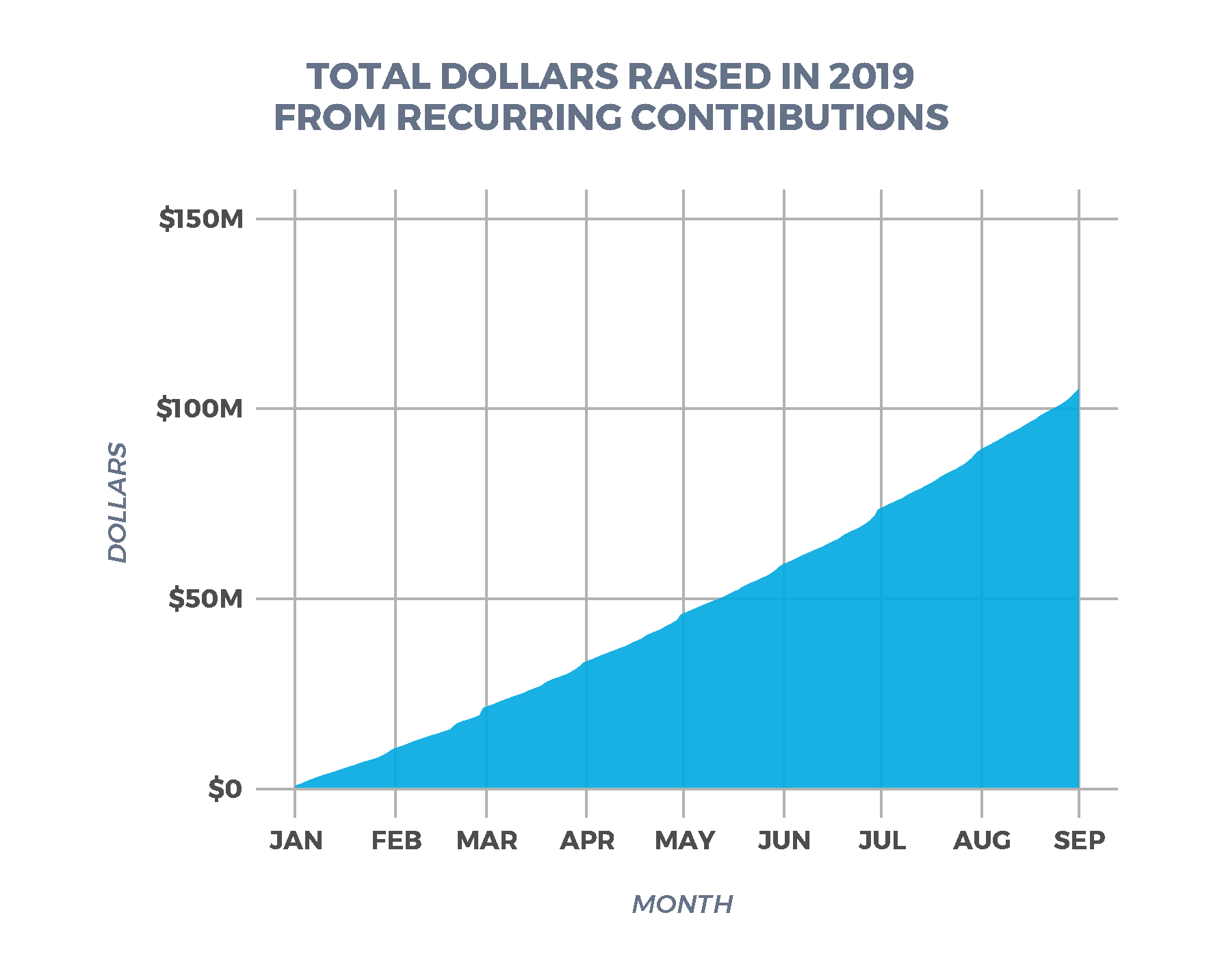
3. Budgets for the win!
It goes without saying that budgets are absolutely essential to a well-organized campaign or organization. Recurring contributions make budgeting easier and more accurate — if you’re receiving a consistent amount of money every month, you can look forward and plan ahead. Recurring contributions created on ActBlue in the 2018 cycle lasted, on average, around 5 months, giving you plenty of time to schedule ads, hire organizers, or pay for whatever else your group may need. For small campaigns and organizations, having a reliable grassroots donor base and a regular number of recurring contributions will also allow staffers to spend less time finding one-time donors. A strong recurring contribution program is not only a proven fundraising strategy, it’s a time saver!
Asking for recurring contributions is intimidating — we get it! But grassroots donors want to invest in your campaign or organization long term, so it’s important to integrate recurring asks into your existing digital fundraising program. Plus, ActBlue makes it easy! Here are some tips and tricks:
1. Smart Recurring: The ultimate recurring tool!
When you create a contribution form on ActBlue, the pop-up recurring feature, which asks donors giving $100 or less to make their one-time donation a recurring one after they hit “Contribute,” is automatically on. Our Smart Recurring feature works similarly, but it asks donors for a smaller recurring donation after they’ve contributed. By asking people for a recurring contribution that is smaller than what they just gave as a one-time donation, you can help meet people where they are and raise more money in the long run!
2. Don’t forget rapid response.
When there is a crisis or event that thrusts your campaign or cause into the spotlight, people are much more likely to be tuned in to your group and give a donation right in that moment. Although it is easy (and understandable!) to focus on handling the immediate situation, some longer-term thinking can help extend your momentum. Asking for recurring contributions over email or social media is a powerful way to meet the moment and implement real change through small-dollar donations.
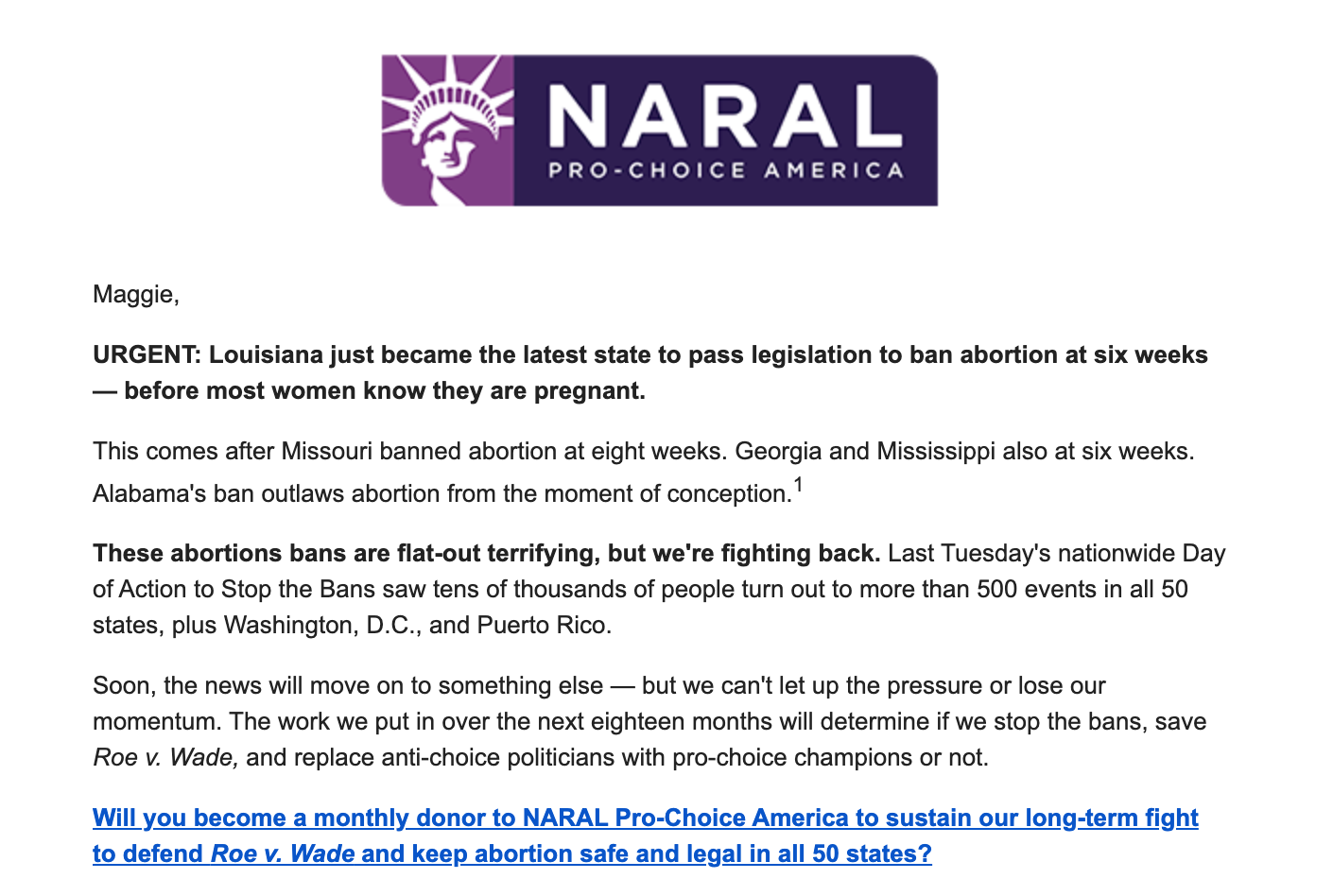
A strong recurring program will ensure that when the media moves on to cover other news, your group will still have a dedicated cohort of monthly donors that enable you to do the important work you want to focus on.
3. Always say thank you!
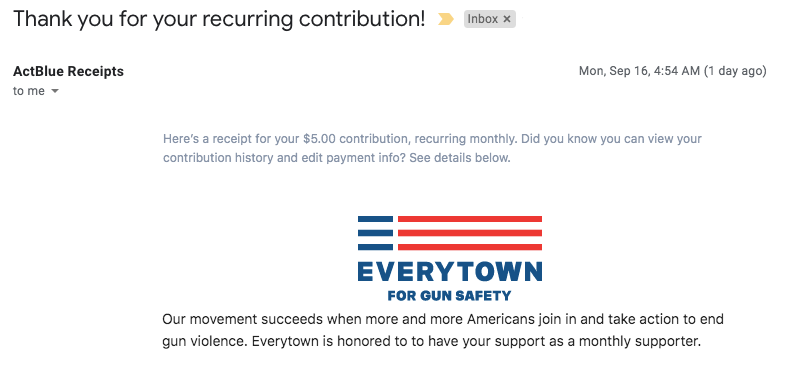
Last but not least, make sure to specifically thank your sustainers! You don’t want to send too many fundraising emails to your recurring donors, because they’re already making a big contribution to your work. Save those emails for key moments or rapid response situations (and only ask them for a one-time gift). Instead, focus on sending emails to this group of donors that recognize their vital support and highlight what their money is doing for your work. Read this article if you need a reminder on how to access your recurring donor information!
In many ways, recurring contributions are at the heart of the small-dollar donor movement: By giving a small amount of money on a monthly basis, individuals can make their voices heard and fully invest in causes and campaigns they care about without giving a large one-time donation. And by building these relationships with donors, you can budget more effectively and have a reliable base of active supporters. That’s what we call a win-win!


